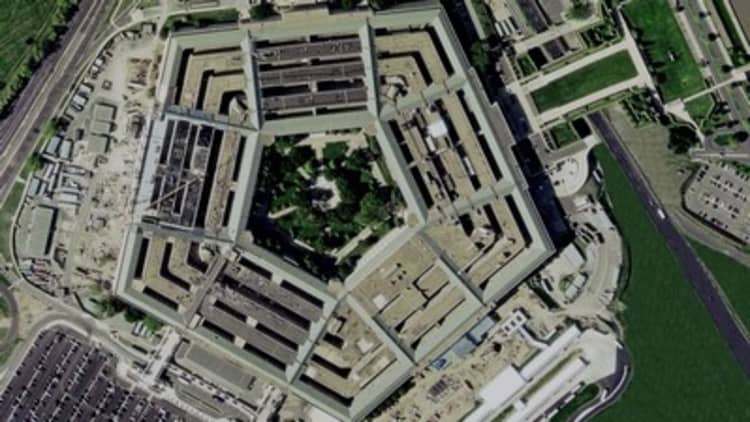
WASHINGTON – President Donald Trump on Monday said that the U.S., China and Russia would "at some time in the future" begin talks to end what he described as an uncontrollable arms race, and declared U.S. defense spending "crazy!"
The statement marks a dramatic reversal for the president, who has championed increased spending on the military and in August signed a colossal defense spending bill.
The measure authorized a top-line budget of $717 billion to cover a litany of spending. It provided the largest raise to American troops in nearly a decade.
At the time, Trump said the spending bill was the "most significant investment in our military and our war fighters in modern history."

In March, after teasing a potential veto, Trump signed a $1.3 trillion omnibus spending package that granted the most significant increase in defense funding in 15 years. The Department of Defense is set to gain $61 billion more than last year's enacted funding for a top line of $700 billion.
The president said at the time that he had "no choice but to fund our military because we have to have by far the strongest military in the world."
In recent months, Trump has escalated his attacks on Russia for its arms program and announced his intention to withdraw from a Cold War-era nuclear weapons treaty. The U.S. and Russia collectively possess more than 90 percent of the world's nuclear weapons.
The Trump administration has repeatedly targeted both China and Russia for attempting to undermine the United States on the world stage.
In its first National Security Strategy, a document that outlines the administration's defense priorities, the administration said in late 2017 that "China and Russia challenge American power, influence, and interests, attempting to erode American security and prosperity."
"They are determined to make economies less free and less fair, to grow their militaries, and to control information and data to repress their societies and expand their influence," the administration added.
But on Monday, the president appeared more wary of the growing portion of America's national budget devoted to defense, and signaled the possibility that the three countries could come together to forge an agreement.
"I am certain that, at some time in the future, President Xi and I, together with President Putin of Russia, will start talking about a meaningful halt to what has become a major and uncontrollable Arms Race," Trump wrote. "The U.S. spent 716 Billion Dollars this year. Crazy!"
The Pentagon did not respond to a request for comment. Defense Secretary James Mattis later told reporters that he hadn't seen the president's tweet.
Trump returned to Washington on Sunday after attending the G-20 summit of world leaders in Argentina. At the summit, Trump and Chinese President Xi Jinping agreed to a trade war cease-fire, though the details of the agreement reached by the two leaders remain uncertain. Stock markets surged Monday, the first day of trade after the summit.
A Kremlin spokesperson said Monday that Putin expected to discuss the nuclear weapons treaty with Trump during a planned meeting at the summit, according to the state news agency TASS.
"But, regrettably, as you know, the meeting never took place," the spokesperson said.



